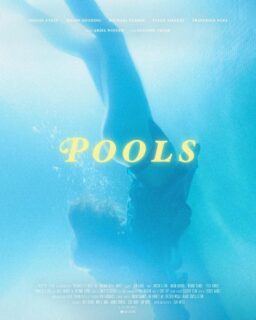The films of John Cassavetes come in a deluge of words and emotions, of grand and sad gestures, of characters who want to love and don’t know how. His people are often balanced between the terror and exhilaration of manic-depression. Since he uses the same friends and family members again and again, since he sometimes uses his homes as locations, there is a feeling sometimes that he’s cutting close to the bone: His movies are the autobiography of his emotions.
It has been nine years since Cassavetes died, and now his films can be seen more clearly. When he was in full flood, his work alternated with his professional acting jobs, and they clouded the picture. Starting today and running for a week, the Music Box is presenting a season of nine of his films, four of them with newly-minted 35mm prints, and the form of his achievement is clear to see.
He was the most important of the modern American independent filmmakers, the one whose “Shadows” (1959) clearly demonstrated that one man could make a personal movie without the albatross of the studio system. It is no accident that the indee filmmakers, who dominated last year’s Oscar nominations, have named their own most important award after him.
Cassavetes worked both inside and outside the system. He was a bankable star who pulled down big paychecks for his work in such films as “Rosemary’s Baby,” “Two Minute Warning,” “The Fury,” “Brass Target” and “The Dirty Dozen.” He used those jobs to finance his own films, and his friend and frequent star Seymour Cassel told me that if Cassavetes had been able to finance his work any other way, he might never have acted again.
Cassavetes’ characters love to talk, to smoke, to drink. They hate to sleep. They fear silence. They seek love, but it is not sex they crave but total acceptance and security; they rarely find it, and when they do, it is in passages of giddy, manic relief that cannot last. Many of the key roles in Cassavetes’ films are played by his wife, Gena Rowlands, and it was his great good fortune to find a collaborator who seemed to share a telepathic sympathy for his aims. In many of his films, the autobiographical character is not the male lead, but the female lead, played by Rowlands.
Cassavetes loved a rough, spontaneous feel to his films. His cinematographers would report that a “perfect” shot was not perfect for Cassavetes, who would order it shot again, jostle the camera with his elbow to make a movement jerky, and only then be satisfied with it. He wanted you to feel like a voyeur caught up in the tumult of the character’s emotions.
Here is the Music Box schedule:
Friday: “A Woman Under the Influence” (1974), with Rowlands and Peter Falk in the story of a woman who desperately wants to please (“Tell me who you want to be!”). Rowlands got her first Oscar nomination for the role, in which the Falk character has her institutionalized even though he may be as crazy as she is.
Saturday: “Love Streams” (1984), a new print of Cassavetes’ last film (some say his greatest), with Rowlands and Cassavetes as sister and brother. Cassavetes desperately dates and beds a series of bemused or puzzled women, while Rowlands has something halfway between a breakdown and a breakthrough.
Sunday: A new print of “Minnie and Moskowitz” (1971), the comic masterpiece starring Cassel as a parking lot attendant and Rowlands as a museum curator. They discover they’re on exactly the same wavelength, in a romance of exhilarating spontaneity.
Also Sunday: A new print of “Gloria” (1980), which won Rowlands the second of her Best Actress nominations, as a mob-connected woman who takes the kid of a mob victim under the arm, and tries to protect him.
Monday: Ben Gazzara in “The Killing of a Chinese Bookie” (1976), Cassavetes’ unseen sleeper, which got little distribution when it was first made, but has gathered a reputation as one of his best and funniest. Gazzara plays the operator of a strip club on Sunset Blvd., who problems with the mob force him into the unwanted role of hitman.
Tuesday: “Opening Night” (1979), with Rowlands as an alcoholic actress facing a stage premiere with dread and emotional panic; the rich cast includes Cassavetes, Gazzara, and Joan Blondell as a veteran actress.
Wednesday: “Faces” (1968), the landmark film which won Oscar nominations for Cassavetes’ screenplay and for the acting of Seymour Cassel and Lynn Carlin–she as an unhappy housewife (married to John Marley), he as a lover she takes in desperation.
Also Wednesday: “Shadows” (1959), the first film he directed, the story of a doomed interracial romance on New York’s beatnik fringe.
Thursday: A new print of “Husbands” (1970), not my favorite, but I haven’t seen it since it opened and perhaps his later films have prepared me to see it differently. Cassavetes, Falk and Gazzara play three buddies who, on the death of a friend, go on an extended binge of drinking and sex, as if hurling their recklessness in the face of mortality.











